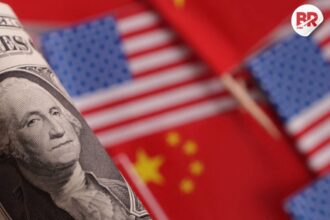
As Canadians voted in a crucial election, many were curious about one thing: why do elections always happen on Mondays?
This election is especially important, with people deciding whether to support Mark Carney and his Liberal Party or Pierre Poilievre and his Conservative Party. But there’s also been drama, with US President Donald Trump making controversial comments, even suggesting that Canada should become the “51st state” of the US. His remarks added extra tension to an election already focused on issues like economic problems and political conflicts.

But despite all the drama, there’s one thing that hasn’t changed: Canada’s tradition of holding federal elections on Mondays. Here’s why:
Read More: Singapore Blocks Foreigners on Facebook Before Big Election – Here’s Why!
Why Federal Elections Are Held on Mondays:
- It’s the Law Elections Canada says that federal elections must be held on a Monday. The election campaign usually lasts between 37 and 51 days.
- Voters Get the Weekend to Prepare Having the election on Monday gives people the weekend to plan, travel, or adjust their work schedules so they can vote.
- Time to Set Up Polling Stations Election officials need time to set up voting stations. Saturday and Sunday are used to organize everything, without interfering with regular weekday activities.
- Fixed Election Dates Prevent Political Manipulation A change to Canada’s election laws by former Prime Minister Stephen Harper made sure elections happen every four years on the third Monday of October. Harper believed that this would stop governments from calling early elections for political advantage.
- What Happens If It’s a Public Holiday? If a holiday, like Thanksgiving, falls on Monday, voting shifts to the next day, Tuesday. For example, in 2008, the election was held on Tuesday, October 14, because Thanksgiving was on Monday, October 13.
- Multiple Parties in the Election In this year’s election, there are several major political parties involved: the Liberal Party, the Conservative Party, the New Democratic Party (NDP), Bloc Québécois, and the Green Party.
- When Will We Know the Results? Preliminary results will be available on election night. Final results will come in about two to three days later after a careful review.
- Carney Leads by a Small Margin Last-minute polls suggest that Mark Carney, the former central banker, is leading, but the race is tight. Many voters feel Carney is better suited to handle Trump’s unpredictable behavior.
- Trump’s Influence Carney has warned that Trump’s America wants to weaken Canada to control it. Meanwhile, Poilievre, the Conservative leader, focuses more on domestic issues like the rising cost of living in Canada, which has caused many people to lose trust in the Liberal government.
- Trump’s Comments Adding Tension Trump’s controversial statements about Canada becoming the 51st state have caused shockwaves, making this election even more intense and high-stakes.
Despite the drama and issues, Canadians still vote on Mondays because of the law, the time needed for preparation, and the tradition that ensures a fair and planned election process.












